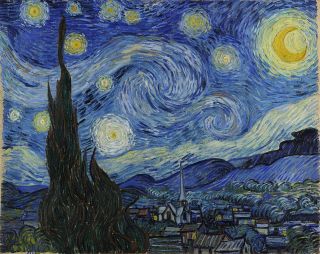Deception
Truth? Delusion or Hallucination?
Personal Perspective: What you see with your eyes might not be what others see.
Posted June 26, 2023 Reviewed by Michelle Quirk
Key points
- It is hard to distinguish truth from biased beliefs, even from those that build before our eyes.
- You can’t always believe what you are soberly seeing.
- Communication can distort reality.

Have you ever had an experience of seeing something happen and then being concerned that you did not see what you thought you saw? If you have, your happening must have felt bizarrely upsetting. At least, I believe so, for here is a curious story involving an event that happened to me. I recently had a personal experience of what I saw that could have been a hallucination. It brings up questions that beg for answers. My Psychology Today post “Trusting Truth: How Do We Sense What Is True and What Is Not?” appeared last June. I move on though, to whether momentary visions can connect with truth or, at least, connect to beliefs from obscure evidence.
In the year since I published that post, I've continuously pondered my trust in truth as if it stands by evidence through an existing group of facts. But what are facts? Are they what we see or hear, or what the internet tells us? Or could they be delusional beliefs?
Several months ago, sitting on a park bench at the edge of a lake chatting with a friend, I was suddenly alarmed by a vision. For what might have been just 30 seconds, I felt something was wrong. Was I having a stroke? Was there a tumor in my brain? They are reasonable frights for those who oddly see two suns of equal brightness far apart on a cloudless day.
I turned and hesitatingly said to my friend—or at least I think I said— “Look, there are two suns out today. Isn’t that fantastic?”
“It’s a sundog,” he said, coolly. “I’ve seen a few at this pond.”
I had never heard of a sundog, and never did I see such a phenomenon. While the two suns stayed equally bright, we talked about sundogs. I was so excited by the experience that for the next few days and probably weeks I told the story to everyone I knew. Though I had no photo, I had evidence—a witness.
At home, I googled "sundog" and learned that it was a rare event. But it was not what I had seen: two suns in a cloudless sky. In my memory, there were neither halos nor rainbows. I had the rare privilege of having seen a parhelion, sunrays refracting through ice crystals. Legend has it that such a parhelion happened during the War of the Roses and that Edward IV told his troops that it was a Holy Trinity divine morale booster blessing of his forces. That was in 1461, but I’m sure that since then other parhelions witnessed were not so divine. And now, 562 years later, one appears to leave me feeling special.
Do You Always Believe What You See?
A month later, my friend denied seeing what I saw.
"I don't know what you're talking about," he said.
"What?! You were with me when we saw two suns, one as bright as the other! Are you gaslighting me?"
"I didn't see two suns."
"Hold on. You do remember sitting together on a bench and chatting with me. No?"
"We were looking at something. But two suns? Hmm, I don't know anything about that."
"But you were the one who told me that we were seeing a sundog. I had never heard of a sundog before."
"I saw a sun and a short rainbow, not two suns."
"I pointed to the suns, and we talked for several minutes about them!
"You said, 'Do you see what I see?' and I said 'Yes.' My 'Yes' referred to my understanding that you were seeing something, and I was responding to what I believed to be one sun and maybe a tiny rainbow. That's all."
Could I have been in a state of hallucination, seeing one of the rarest visions of real life? My experience was not an apparent perception of something not present since I continued to insist that I saw what I saw and that what I said I saw was what I saw. Well, whom else should I believe if not my own eyes?
If not a hallucination, then what? Delusion, deception, false impression, or head trip? Of course, the best and least arguable is a simple optical illusion. But then, my friend would have also been deceived by that same optical illusion.
Was It Delusion?
If the truth of my vision was an incorrect inference about external reality that is firmly sustained despite what almost everybody else believes and despite what constitutes incontrovertible and obvious proof or evidence of the contrary—which is close to the Diagnostic and Statistical Manual of Mental Disorders (DSM-5-TR) definition of delusion—then the belief in what I saw would have been delusional. In other words, it would be a false belief, but not necessarily a medical, neurological, or mental abnormality, other than just some overvalued, unreasonable, or misjudged conception that has some level of ambiguity.
But deep semantic digging brings us to one of the persistent questions of psychopathology that have no definite phenomenological answers other than a slew of competing ones starting with the early 20th-century German psychiatrists Emil Kraepelin and Karl Theodor Jaspers. The DSM-5-TR is close to their view on delusion. More recent definitions surround and debate a British psychiatrist, the late Andrew Sims, who told us that a delusion is a false, unshakable belief contradicting a person's educational, cultural, and social background while holding that belief with high conviction and subjective assurance.
My story was a one-off belief episode that could prompt worry about my future mental health. Could it be a psychotic disorder, or could it be an oncoming dementia?
No! I know what I saw, and that feeling of being right—hallucination or not—is too confusing to handle. Yes, it's only about seeing, but that sense becomes so personally questionable that even trust of awareness must be confirmed by solid evidence.


